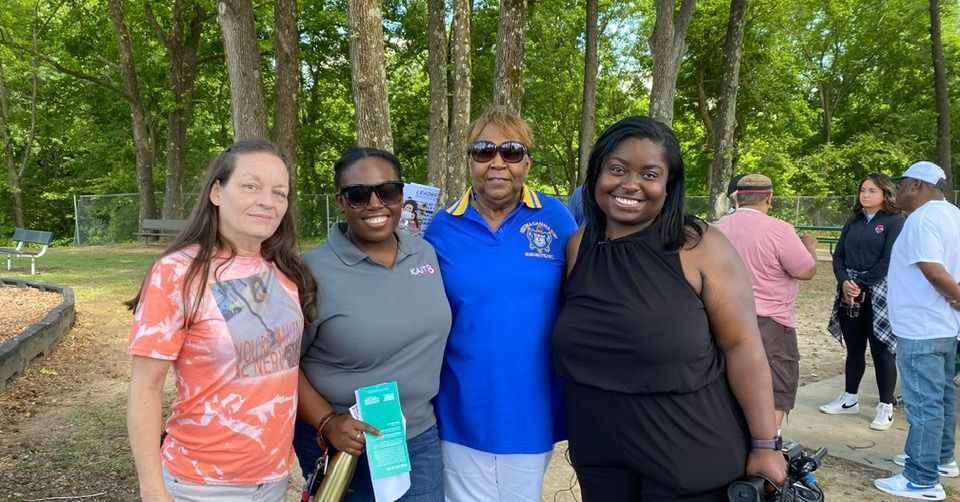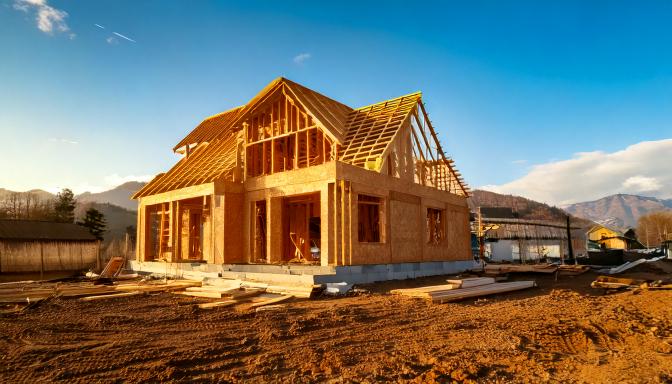A WINTHROP ROCKEFELLER FOUNDATION/KLEK COLLABORATION
Jonesboro, AR – May 22, 2024 – In a significant community conversation this morning on 102.5 FM, host LaGanzie Kale delved into the mental health challenges faced by ALICE (Asset Limited, Income Constrained, Employed) populations in Northeast Arkansas. Joined by Kenya Ward, LCSW, the discussion highlighted the unique struggles and mental health implications for these hardworking yet financially strained individuals.
Understanding the ALICE Population
ALICE populations include individuals and families who, despite being employed, struggle to meet basic needs due to limited assets and constrained incomes. These individuals live above the federal poverty line—approximately $12,000 for individuals and $24,000 for a family of four—yet they face significant financial challenges in covering essential expenses such as housing, childcare, and debt payments.
Kenya Ward emphasized that about 31% of Arkansas’s population falls into the ALICE category. “These are hardworking people living above the poverty line,” she explained, “but they still have a great deal of difficulty making ends meet and getting their basic needs met.”
Financial Stress and Mental Health
Financial stress significantly contributes to mental health issues among ALICE populations. The constant worry about finances can lead to severe mental health conditions, including depression and anxiety. Ward noted, “One in five Americans will experience some form of mental health issue in their lifetime,” highlighting the prevalence of these conditions.
Current inflation only exacerbates these challenges, with rising costs for necessities like food, clothing, shelter, and gas, while wages remain stagnant. Ward pointed out that even though wages might increase minimally, it is often not enough to make a substantial difference in alleviating financial stress. “This creates a vicious cycle of financial strain and mental health deterioration,” she said.
Manifestations of Mental Health Issues
Depression and anxiety are the most common mental health issues observed in ALICE populations. Ward described how depression might manifest differently between genders. In men, it often appears as anger or irritability due to societal pressures to provide for their families despite insufficient income. “Many times, men feel like it’s safer to demonstrate anger than to show sadness or grief,” Ward explained.
For women, depression and anxiety might present as feelings of hopelessness and helplessness, compounded by the need to balance work and household responsibilities. The constant struggle to make ends meet can lead to significant mental health breakdowns, affecting their overall well-being and productivity at work. This reduction in productivity further jeopardizes their financial situation, creating a cycle of stress and mental health decline.
Barriers to Accessing Mental Health Care
Several barriers prevent ALICE populations from accessing adequate mental health care. Ward highlighted the stigma associated with seeking mental health treatment, lack of time, and being underinsured or uninsured. Many insurance plans require high deductibles before covering mental health services, making it financially unfeasible for many families to seek help.
“People often feel guilt or shame when seeking mental health treatment,” Ward said. “It takes time to dispel these myths and break down the walls of stigma.”
Available Resources and Support
Despite these barriers, resources are available to help those in need. Ward mentioned pro bono sessions, sliding scale fees, and the possibility of working with interns at therapy agencies who can provide free or low-cost services. She emphasized the importance of overcoming the stigma and seeking help, as early intervention can significantly improve mental health outcomes.
Additionally, Ward discussed the role of psychotropic medications in treating mental health issues. While these medications have side effects, they can be a valuable temporary coping strategy to help individuals manage symptoms of depression and anxiety until they can develop more sustainable coping mechanisms through therapy.
The Impact on Productivity
Ward also discussed the impact of mental health issues on productivity. “If your mental health is suffering, you really don’t want to be around people,” she explained. “Most times, you really want to be alone. You want to kind of retreat and withdraw.” This withdrawal can lead to increased absenteeism, lower productivity, and even job turnover, further exacerbating financial and mental health challenges.
Lower productivity and frequent call-ins due to mental health issues can significantly affect the income and job stability of ALICE populations. This, in turn, perpetuates their financial difficulties, making it even harder for them to escape the cycle of financial strain and mental health struggles.
The Role of Therapy
Therapy can play a crucial role in helping ALICE populations cope with their mental health issues. Ward emphasized the importance of seeking help from mental health professionals who can provide diagnosis, develop treatment plans, and offer therapeutic interventions. She also mentioned the benefits of psychotropic medications, which can help manage symptoms and improve mental health stability.
Ward highlighted several resources available to those in need, including pro bono sessions, sliding scale fees, and therapy interns who can provide low-cost services. She also encouraged individuals to seek support from local therapists and mental health agencies.
Call to Action
The conversation concluded with a call to action for those in need to seek help from local therapists. Ward can be found at Jackie Scope Therapy, and there are numerous other mental health professionals in the Jonesboro and Northeast Arkansas area. Seeking help can provide much-needed support and relief for those struggling with the dual burden of financial and mental health challenges.
LaGanzie Kale encouraged listeners to take the first step towards mental wellness. “Help is out there,” he said. “Just do a Google search, find the right therapist for you, and get the help you need. Therapists would rather see you struggling but getting help than to just give up.”
Kenya Ward’s message resonated deeply, emphasizing the need for both individuals and policymakers to address the interconnected issues of financial stability and mental health. By providing support and resources, communities can help ALICE populations overcome their challenges and improve their overall well-being.
For those of you listening, if you or someone you know is struggling, please seek help. Local therapists like Kenya Ward at Jackie Scope Therapy are available, and there are many resources out there. Let’s work together to support our ALICE populations and ensure they receive the help they need.
This community conversation serves as a vital reminder of the challenges faced by ALICE populations in Northeast Arkansas. It urges all of us to take action, provide support, and advocate for policies that address the root causes of financial and mental health struggles. Together, we can make a difference.
For more information and to find local mental health resources, listeners are encouraged to perform a Google search or contact local therapy providers. Let’s ensure that everyone has the opportunity to live a healthy and fulfilling life.
More Posts for Show: Community Conversations








Comments